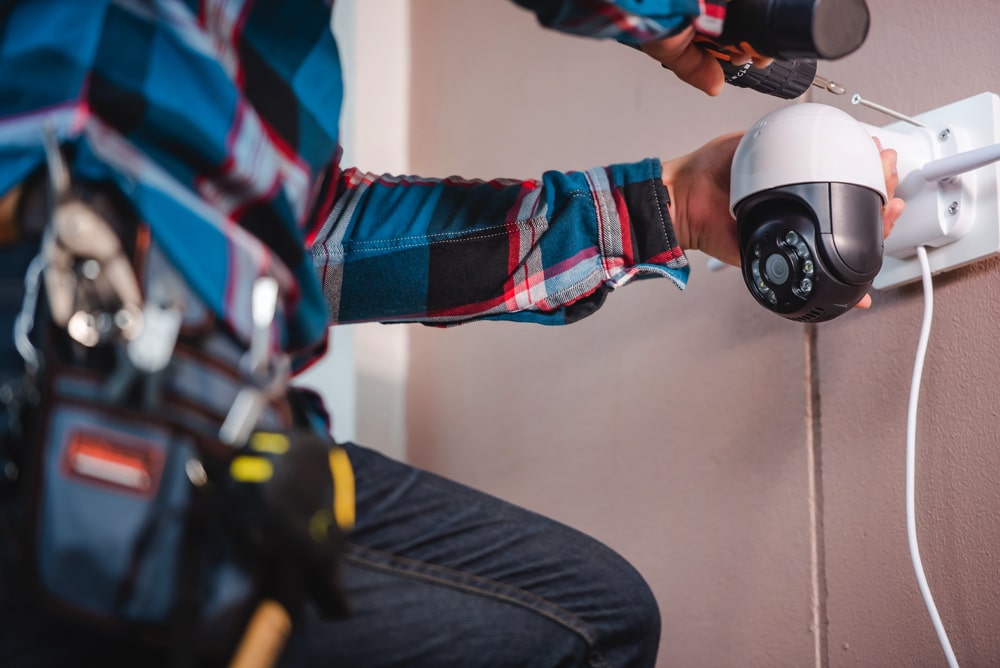The Top 5 Security Risks of Installing a DIY Alarm System
 December 29, 2020 Blog 0 Comment
December 29, 2020 Blog 0 Comment So you’ve chosen to go the do-it-yourself route and install an alarm system by yourself. That’s great news since you can customise it however you want and save up on costly fees/installation throughout the process. For the enthusiastic tinkerers out there, a DIY alarm system can prove a bit fun to work with and it’s a rewarding experience once you have everything installed.
But just like with any self-made projects out there, a DIY alarm system carries a couple of security risks that you need to be aware of. What’s the catch, you say? In this article, we’ll go over the top 5 security risks of installing a DIY alarm system to help you determine whether it’s the right option for you.
- No monitoring means no emergency calls
One of the main disadvantages of a DIY alarm system is the lack of emergency calls. When you aren’t paying monthly fees, you’re avoiding the benefits of a security company, chief among them being the emergency response. This means that in the event that your alarm system detects an intrusion or fire incident, it’s entirely up to you on how to respond.
Sure, you may get a notification to check your video surveillance, but what if you’re in grave danger and you’re unable to contact the right authorities? With a professionally monitored alarm system, you can guarantee that help is on the way, even if you’re incapacitated.
- Vulnerability to user error
Professional technicians know how to install home security systems with the proper layout and installation. This includes the correct placement of the security cameras, the motion sensors, the control panel, and more. If you’re someone who has limited knowledge or experience with DIY alarm systems, then you may want to reconsider your options.
This is because DIY alarm systems are prone to user error which can end up leaving gaps in your home security. You can’t just install the devices where you see fit. Each component has to be accounted for to ensure the alarm system works harmoniously without any issues.
The costs savings are just not worth it, especially if your alarm system is set up in a way that doesn’t match professional monitoring standards.
- Power/internet outages
Most DIY alarm systems require a steady internet connection along with a constant power source to work effectively. If any of these two were to go down, your alarm system may not function or operate at 100%. Between shoddy internet connection and bad weather, a DIY alarm system suffers from reliability issues from time to time.
One solution is to opt for battery-powered devices so that way, they can still operate even in a power outage. Still, you’ll need to check the battery frequently to ensure they have enough charge. With professionally monitored alarm systems, the components can be hard-wired to eliminate any reliability issues and give you more peace of mind.
- False alarms
Most DIY alarm systems aren’t that well-equipped in handling false alarms. From pets triggering the motion sensors to a security camera picking up movement from swaying trees, these are just some examples of false alarms that frequently occur with self-made alarm systems.
To be fair, the components that come in DIY kits cannot compare to those available in security monitoring companies. While you can obtain some of the advanced features, it’s the subtle details that make a huge difference in terms of eliminating false alarms.
- Maintenance and upgrades
The DIY route doesn’t just apply to the installation. You are responsible for maintaining and upgrading the entire system to ensure everything is running smoothly. If a component doesn’t work or the alarm isn’t sounding, it’s entirely up to you to on troubleshooting the problem. You need to upgrade the alarm system’s software as well so that the features are up to date and no security bugs compromise your home security.
With a professionally monitored alarm system, you benefit from 24/7 customer service and periodic maintenance checks by the technicians themselves. This means you can count on expert advice should you encounter any security issues. As the alarm system is maintained by professionals, you can count on it to last for years and work reliably at all times.
So, is a DIY alarm system the one for you?
We’re not saying that a DIY alarm system is entirely bad as there are a couple of advantages to a self-made alarm system including flexibility, cost savings, and portability. It’s just that there are a couple of security risks that you need to be aware of to ensure you’re making an informed decision.
If you’re a homeowner who’s had prior experience with installing custom security systems, then a DIY alarm system will work for you. But if you’re unfamiliar with the whole setup and installation process, then we recommend a professional monitoring system instead. That way, you can be fully confident with your home security and benefit from the security company’s services.

